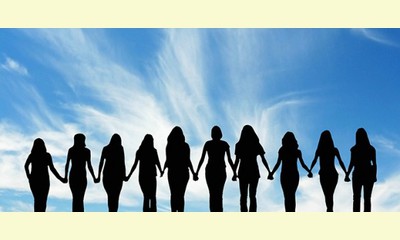|
|
Consultation Identifies Ways to Support a Culture of Peace and Non-Violence (Fiji)
un article par The Jet Newspaper
There are many ways in which women can be empowered
to promote a culture of peace and non-violence in
the Pacific, just as there are many ways in which
culture has been used as an excuse to limit the
rights of girls and women.

click on photo to enlarge
At a consultation on Women’s Empowerment for a
Culture of Peace and Non-violence in the Pacific
that ended in Nadi [Fiji] today [June 17],
participants from the Cook Islands, Fiji,
Kiribati, Palau, Papua New Guinea, Samoa, Solomon
Islands, Tonga and Vanuatu shared examples of how
culture and women’s empowerment interacted at
their country level.
The consultation ended with an agreement on a
range of actions at local, national and regional
level that could be adopted to promote increased
dialogue amongst leaders and policy makers on the
contribution culture and heritage can make to
addressing issues of gender inequality and
reducing gender based violence.
These are included in a draft statement which
identified the importance of building positive
cultural models using a range of key actors
including women leaders, faith based leaders, and
traditional leaders as well as political leaders
and parties.
The draft statement also emphasized education as a
means of promoting a culture of peace and non-
violence. The consultation noted that education
curriculum could place a stronger emphasis on
values, gender equality and building positive
cultural models.
The follow up actions identified through the draft
statement include public awareness on the role of
women, including grass roots women, in bringing
peace to conflict afflicted communities; targeting
young people as the next generation of leaders, as
well as using arts, cultural and sports events to
break down gender stereotypes. The draft
statement also included follow up actions relating
to economic empowerment, access to justice and
service delivery.
The draft statement will be finalized in a month’s
time and will be used to advocate for change at the
local, national and regional levels.
The consultation was jointly organized by the United
Nations Educational, Scientific and Cultural
Organization (UNESCO), the United Nations
Development Programme (UNDP) and UN Women
|








|
DISCUSSION
Question(s) liée(s) à cet article:
Do women have a special role to play in the peace movement?,
* * * * *
Commentaire le plus récent:
The 30 articles in CPNN linked to this question make it clear that women indeed have a special role to play in the peace movement. See the following for an historical explanation of why this is true.

|
|









